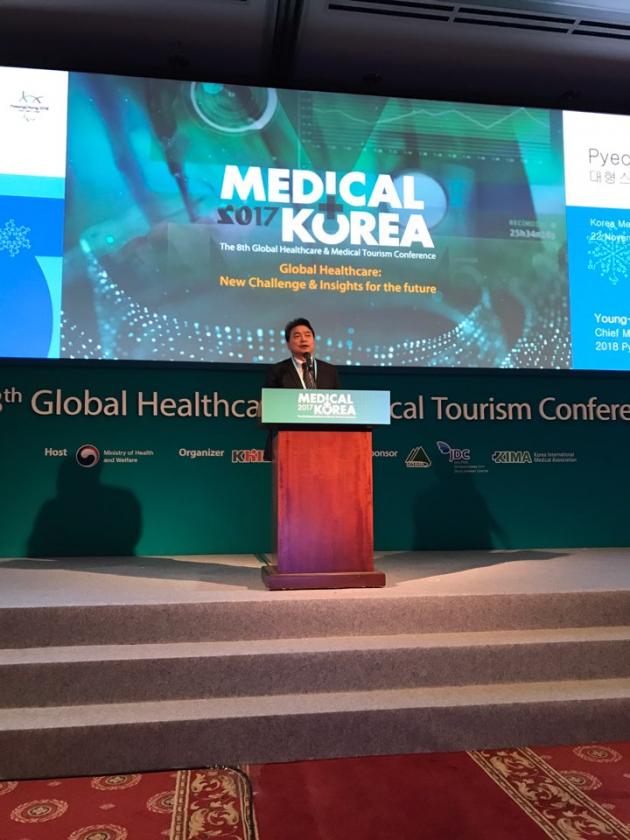Health officials related to the 2018 PyeongChang Winter Olympics demonstrated Korea’s medical readiness for the event at the “Medical Korea 2017,” which opened Tuesday for a two-day run.
The Ministry of Health and Welfare (MOHW) and the Korea Health Industry Development Institute (KHIDI) held their eighth consecutive annual conference to share the vision and direction of global healthcare and medical tourism.

“Medical professionals and officials have worked tirelessly for the past two-years training and studying for the 2018 PyeongChang Winter Olympics,” said Lee Young-hee 이영희, chief medical officer for the Winter Olympics and a professor at Yonsei University Wonju College Department of Rehabilitation. "The committee is prepared for the Olympics, and we medical workers, who have provided our time and effort, can say we are ready.”
A total of 2,355 medical professionals, including 311 doctors, will be either working or volunteering for the event. The medical workers will spread out into three medical areas --medical station, polyclinic, and Olympic designated hospital.
The medical station will be installed in every gaming venue for the athletes and visitors, while a separate mobile medical team will stand by to treat any urgent medical emergencies.
Polyclinics stationed in front of the athlete town will treat minor injuries and provide initial treatment for athletes. Polyclinics will offer 24-hour emergency service, 16-hours treatment for orthopedics or internal therapy, and give a reservation policy for any other injuries.
The two Olympic hospitals -- Wonju Severance Christian Hospital (WSCH) 원주세브란스기독병원 and Gangneung Asan Hospital (GAH) 강릉아산병원 – will likely take care of any serious injuries. WSCH will also operate a medical helicopter team to transport patients in dire conditions. Other national team doctors will be able to cooperate freely with the hospital medical staff in treating their athletes.
The 2018 PyeongChang Winter Olympics will also be the first Olympic Games hiring a psychiatrist to deal with any possible sexual abuse or violence. “All medical processes have been outfitted to satisfy the International Olympics Committee (IOC) and all other winter sports associations,” Lee noted
The committee expects that the perfect preparation for the event will lead to a vitalization of medical tourism in Korea after the Olympics.
“Through the event, the committee will proactively introduce Korea’s medical standard globally and establish a medical support system for attracting tourists,” Lee said. “Such preparation can lead to the development of medical commodities aimed for winter sporting tourists.”
During the event, health officials also had seminars introducing Korea’s athlete rehabilitation programs.

